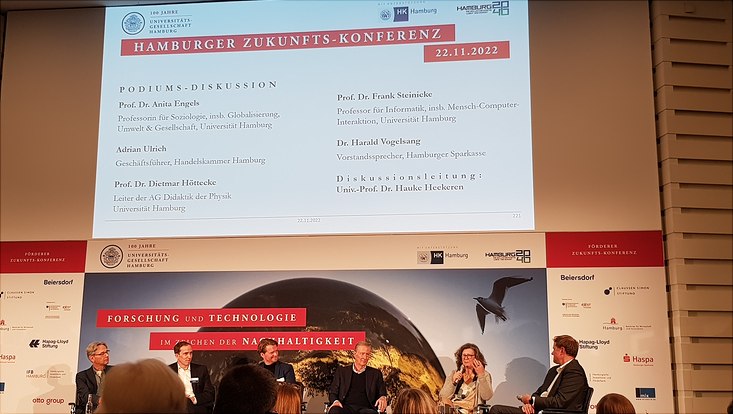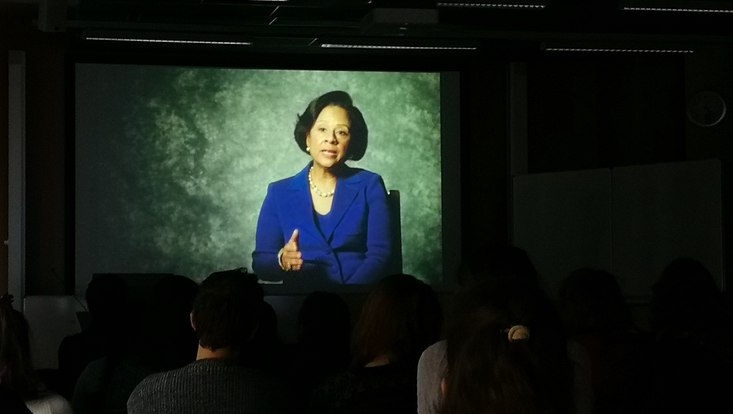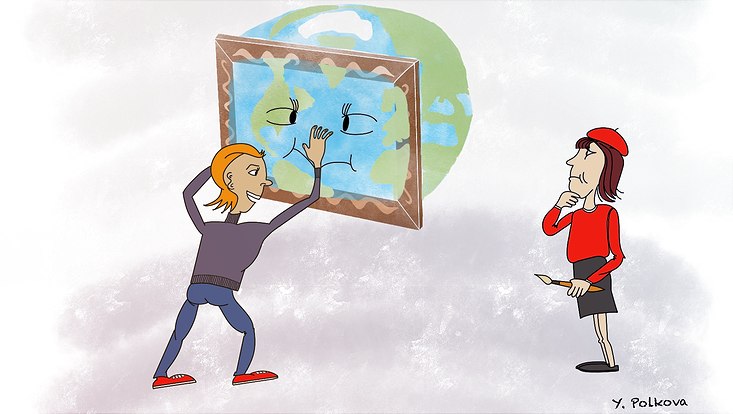Talking about the future at the Hamburger Zukunfts-Konferenz 2022
14 January 2023, by Iuliia Polkova

Photo: Iuliia Polkova
The Hamburger Zukunfts-Konferenz (Hamburg Conference on the Future) took place at the Hamburg Chamber of Commerce on the 22nd of November 2022 marking the hundredth anniversary of the university society Universitäts-Gesellschaft Hamburg. Invited to the anniversary were the members of the society, as well as all interested. The event covered topics concerning the future: debating the 1.5°C goal, organoids - a promising breakthrough in medicine, hydrogen - the old knowledge with new hopes, and politics - recognising individual responsibility.
Frustration about the 1.5°C goal was the audience’s common state. Additionally, the brutal aggression of Russia against Ukraine changes the focus of the international community from burning issues. This throws even more challenges onto the table that what the world is already dealing with. The teaser for discussion from the CLICCS Project suggested that the world is off the trajectory with the 1.5-degree goal. Now understanding this, the audience believed we should do all possible to not overt arrival in a 5°C hotter world. But how? Even here at the event, the panels argued about the exact path. The only clear agreement is that humanity cannot hesitate any longer. The more we delay, the more expensive it gets to deal with the impact of climate change. The path to the carbon-neutral world won’t be easy and there will not be simple one-size-fits-all solutions. Even though Germany puts an emphasis on solar panels and wind parks, this might not be a solution for every country as this is a question of both geographic location and resources. Interestingly, nuclear power was not discussed at all. Instead, hydrogen came up as an important player which is expected to be produced during the periods of energy abundance and subsequently be used from the storage when renewables are lacking. The panel on organoids was quite a change of focus. This technology can revolutionise the transplantation of organs and medication treatment by testing medicine on organoids before being prescribed to patients. No testing on animals, no senseless medical treatments … Sounds great!
The last discussion of the event was the panel on acceptance and political responsibility moderated by the Universität Hamburg president Hauke Heekeren. The questions that bothered the audience were: why is there a lack of action on climate crises? Is it due to ignorance, fatigue, lack of technology, or something else? What are we missing? How can we change this situation? What is the role of scientists there? Is climate a "special" topic where the population is hesitant to accept scientific knowledge? What about organoids? Does anyone have a problem with this technology if it offers life rescue, no more tests on animals, and no more senseless therapies? Experience shows that when people see the real benefits of a solution offered by science, there is no need to spend a lot of energy convincing people about the benefits. Does it mean people do not feel sufficiently affected by the climate crisis yet? Does it mean people do not see real benefits in climate action? Or do they simply not know what to do? The final session brought questions which we did not necessarily find all the answers to. And many of them are left to be answered in the future.
Once again throughout the event, we heard about the lack of professionals and even the incompetence of people in charge of the much-needed social, cultural, energy, and industry transformation. At the event, there were science-industry matching organizations, e.g., for research proposals. But we also require matching industries and professionals searching for the right niche to drive substantial changes. After all, where do we prepare professionals if not at the universities?


